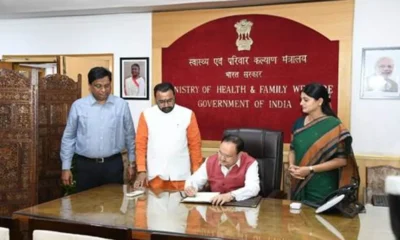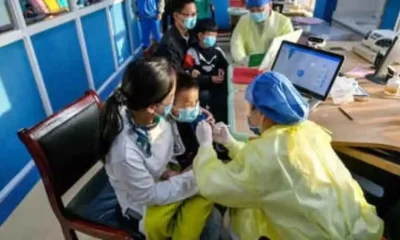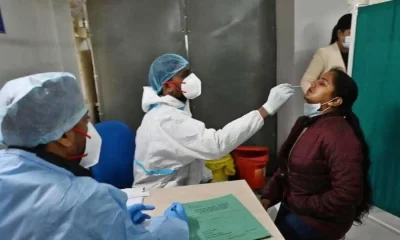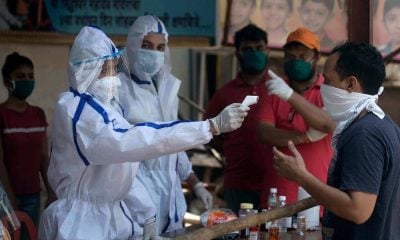The demand for medical oxygen has increased 67 per cent in nine days to April 24, shows data collated from oxygen allocation orders issued by the Ministry of Health and Family Welfare. The allocation data shows that the demand has spread from 12 states on April 15 to 22 states on April 24.
What has led to the oxygen shortage?
In the past few weeks, news and social media have been flooded with photographs of Covid patients gasping for air as the country faces an acute shortage of medical oxygen. The worsening second wave of the pandemic has overwhelmed health infrastructures in most states, with hospitals unable to arrange adequate oxygen supply for the mounting case numbers.
This shortage has led to over 20 patients dying within hours at Delhi’s Jaipur Golden Hospital Friday. Similarly, six patients died in Amritsar after a private hospital could not procure oxygen. Families of deceased patients in Uttar Pradesh have also alleged that several of these occurred due to a lack of oxygen.
What has been said in letters to the state health officials?
Earlier on April 15, Union Health Secretary Rajesh Bhushan had written to the Additional Secretaries/ Principal Secretaries/Secretaries (Health) of 12 states informing them about oxygen allocation against their demand for the week beginning April 20.
The states were Maharashtra, Gujarat, Karnataka, Madhya Pradesh, Delhi, Haryana, Uttar Pradesh, Punjab, Tamil Nadu, Kerala, Chhattisgarh and Rajasthan. These states had cumulatively demanded 4,880 metric tonnes of medical oxygen for the week beginning April 20, and allocations were accordingly made.
After 10 days, Nipun Vinayak, Joint Secretary, MoH&FW had written another letter to state health officials on April 24 and informed them about allocation against their demand for oxygen from April 25 onwards. This time the number of states looking for oxygen allocation from the Centre has risen to 22; their combined demand had also risen to 8,172 MT a day, 67% higher than the combined demand shown in the Health Secretary’s April 15 letter.
Vinayak’s letter shows that the Centre had allocated 8,280 MT medical oxygen a day to these 22 states. The new states demanding oxygen are Telangana, Andhra Pradesh, Uttarakhand, J&K, Goa, Chandigarh, Himachal Pradesh, Bihar, West Bengal, Dadra and Nagar Haveli Daman and Diu.
What are the maximum and minimum oxygen allocations for states?
The top five states with the highest demand for medical oxygen for the week starting April 25 are Maharashtra (1,784 MT/day), Gujarat (1,000), Karnataka (770), Uttar Pradesh (657) and Madhya Pradesh (640).
The states, which have got higher oxygen allocation are: Uttar Pradesh (857 MT/day), Karnataka (802 MT/day), Delhi (490 MT/day) and Madhya Pradesh (649 MT/day).
The states, which have been provided oxygen less than what they demanded are: Haryana (allocation of 162 MT/day against demand of 180), Gujarat (975 MT/day against demand of 1,000), Punjab (137 MT/day against demand of 187) and Tamil Nadu (280 MT/day against demand of 220).
Read Also: Rajasthan CM Ashok Gehlot tests positive for Covid-19, isolates himself
What the Union government has said in its affidavit?
Forecasting the requirement of medical oxygen by April 30 in its affidavit, the Union government said Maharashtra would require 2,000 tonnes (as against 1,500 tonnes on April 20), Gujarat 1,200 MT (1,000 MT), Uttar Pradesh 800 MT (400 MT), Madhya Pradesh 700 MT (445 MT), Delhi 445 MT (300 MT), Chhattisgarh 382 MT (215 MT) and Tamil Nadu 465 MT (200 MT). On Tuesday, Prime Minister Narendra Modi was informed during a review meeting that production has increased from 5,700 MT per day in August 2020 to 8,922 MT on April 25 this year.
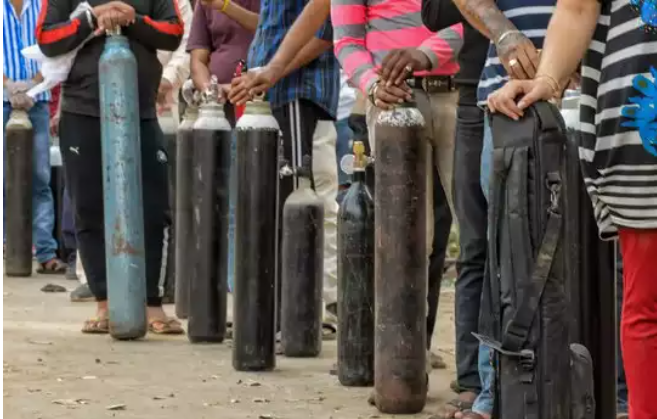

 India News12 hours ago
India News12 hours ago
 India News11 hours ago
India News11 hours ago
 India News2 hours ago
India News2 hours ago
 Cricket news1 hour ago
Cricket news1 hour ago
 India News24 mins ago
India News24 mins ago
